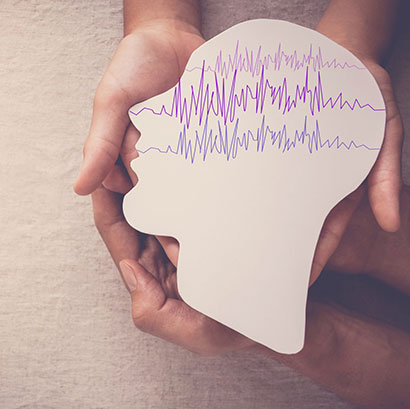

Vitamin D is crucial for maintaining bone health, as it’s needed to help the body absorb calcium. While calcium is found frequently in foods we eat, like milk, cheese or yogurt, vitamin D itself is found sparingly in foods we consume. Fatty fish, like salmon or sardines, along with fortified (vitamin D infused) milk and cereal are some of the options available.
Outside of these limited dietary options, our main source of vitamin D is the sun. “People should aim for 10 to 30 minutes of direct, midday sunlight per day, several times per week,” says Eric Weber, M.D., a board certified pediatrician and director of the Hackensack Meridian Health Medical Group Pediatric Academic Practice.
During winter months, it may be difficult for kids to get the proper exposure necessary to maintain healthy levels. Due to cold temperatures and the need to bundle up, staying outside for that long could be dangerous to the health of a child.
Risks of Vitamin D Deficiency
In order to counteract this, doctors recommend supplements for people of all ages, but especially for children. Vitamin D deficiency in children is a serious problem and can lead to a variety of health concerns. Kids under the age of two can develop bone-softening diseases, like rickets. For older children and teens, lack of vitamin D can lead to an increased frequency in bone fractures.
“It’s important to remember the symptoms of vitamin D deficiency, which could include general body aches and fatigue,” says Mitchell Stroh, D.O., an orthopedic surgeon fellowship-trained in sports medicine.
Infants under the age of 1 should be receive a daily dose of 400 international units (IU) of vitamin D. If the child is being breastfed, he or she will need supplement drops. If the child is formula-fed, 32 ounces of formula per day is needed to ensure proper vitamin D levels. Adolescents, teens and adults should take a daily supplement of 600 IU.
When More Vitamin D Is Needed
Doctors may recommend that your child receive more vitamin D than these recommended amounts depending on a variety of risk factors, including:
- Certain medical problems, like obesity, celiac disease or cystic fibrosis
- If the child is healing from bone surgery
- Or if the child is taking medications that alter the way the body uses vitamin D
When Taking Vitamin D Supplements:
To reap the most benefits of the vitamin D supplements, take the supplement with a food that’s considered a healthy fat, like avocado. “Vitamin D is fat soluble, which means it needs fat to bind to in order to be consumed efficiently,” says Lakshmi Nandiwada, M.D., a board-certified pediatrician.
Supplement production is not overseen by the Food and Drug Administration, so it’s important to talk to your doctor about what’s best for your child before administering.
Find a doctor near me

What Makes a Child Tic?

How to Care for a Child With a Seizure Disorder

How and When To Get Rid of the Pacifier
